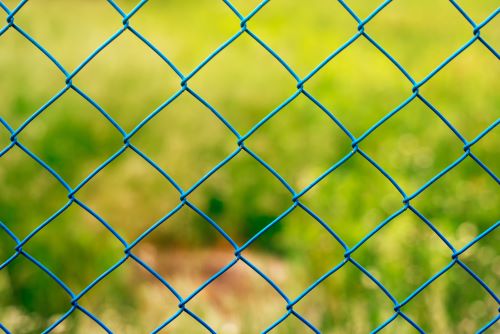No More Mistakes with Flour Mill Machine Manufacturer
Mar 11 2023

Maintaining a chain link fence is essential for improving its longevity, appearance, and security. Chain link fences are more likely to be affected by other outdoor structures, and they require regular care to withstand environmental factors and maintain their proper form and function. Regular maintenance can prevent common issues such as rust, sagging, and damage from vegetation. By dedicating a little time to upkeep, you can significantly increase its durability. This blog features a few tips on how to extend the lifespan of your chain-link fence.
Regular inspections and cleaning help detect issues early, such as rust, loose parts, or damage. Identifying these problems promptly allows you to address them before they become major issues.
Step 1: Start by rinsing the fence with a garden hose to remove loose dirt and debris. This initial rinse makes the cleaning process easier and more effective.
Step 2: Fill a bucket with warm water and add a mild soap or detergent. A soft-bristled brush or sponge is ideal for applying this solution.
Step 3: Dip the brush into the soapy water and scrub the fence gently, starting from the top and working your way down. Pay attention to areas with stubborn stains or dirt. Avoid using harsh chemicals, which can damage the fence coating or harm the environment.
Step 4: After scrubbing, rinse the fence thoroughly with a garden hose to remove any soap residue. This step is crucial to prevent soap buildup, which can attract dirt and grime.
Step 5: Allow the fence to air dry completely. It is not recommended to use a high-pressure washer, as it can damage the fence coating.
While chain link fences are durable and require less maintenance than other types of fences, regular cleaning is still important. It is recommended to clean your chain link fence at least once a year to prevent the buildup of dirt, dust, and grime. However, if your fence is exposed to harsh weather conditions or is located in an area with high vegetation growth, you may need to clean it more frequently.
Rust is one of the biggest threats to the longevity of chain link fences, especially in areas with high humidity or salty air. Preventing and treating rust is essential to maintaining the structural integrity of the fence.
Rust compromises the metal structure of the fence, leading to weakening and potential failure over time. It can occur due to exposure to moisture, poor maintenance, or damage to the protective coatings on the fence.
Opt for galvanized steel chain link fencing, which is coated with zinc to resist corrosion.
PVC-coated wire offers additional protection against rust, though it may not be as effective as galvanized steel.
Regularly clean the fence using warm soapy water and a soft-bristled brush to remove dirt and debris that can trap moisture and lead to rust.
Clean your fence at least once a year to maintain its condition and prevent rust buildup.
Apply rust-inhibiting paints or sprays to provide an additional layer of protection against moisture and corrosion.
Regularly inspect the coatings for chipping or fading and touch up as needed to maintain their effectiveness.
Ensure your yard has proper grading and drainage to prevent water from accumulating around the fence posts, which can lead to rust.
Keep climbing plants and vegetation away from the fence to prevent moisture retention and root damage.
If you notice rust on your fence, address it right away!
Use a wire brush to remove minor surface rust, followed by applying rust-inhibiting paint.
For more extensive rust damage, consider replacing the affected section of the fence to maintain its structural integrity.
If your chain link fence has extensive damage, such as large holes, severe rust, corrosion, or significant structural issues, it may be best to consult a professional. They can assess the damage and determine whether repair or replacement is the most cost-effective option.
Structural problems, such as bent or leaning posts, can be challenging to fix without professional expertise. A contractor can assess the issue and decide whether the posts need to be straightened or replaced. This ensures the fence remains stable and secure.
If you don't have the time or resources to complete a DIY fence repair, hiring a professional can save you time and hassle. Professionals can efficiently handle repairs, allowing you to focus on other tasks.
By following these simple maintenance tips, you can extend the lifespan of your fence and keep your property well-defined and secure. Regular inspections, cleaning, rust prevention, and prompt repairs are essential for maintaining a strong and visually appealing fence. If you need professional assistance or prefer expert maintenance, consider reaching out to a trusted company specializing in Chain Link Fence Installation in St. Louis to keep your fence in top condition for years to come.
Social Media Marketing Strategies for Beginners
Mar 14 2023
(0) Comments